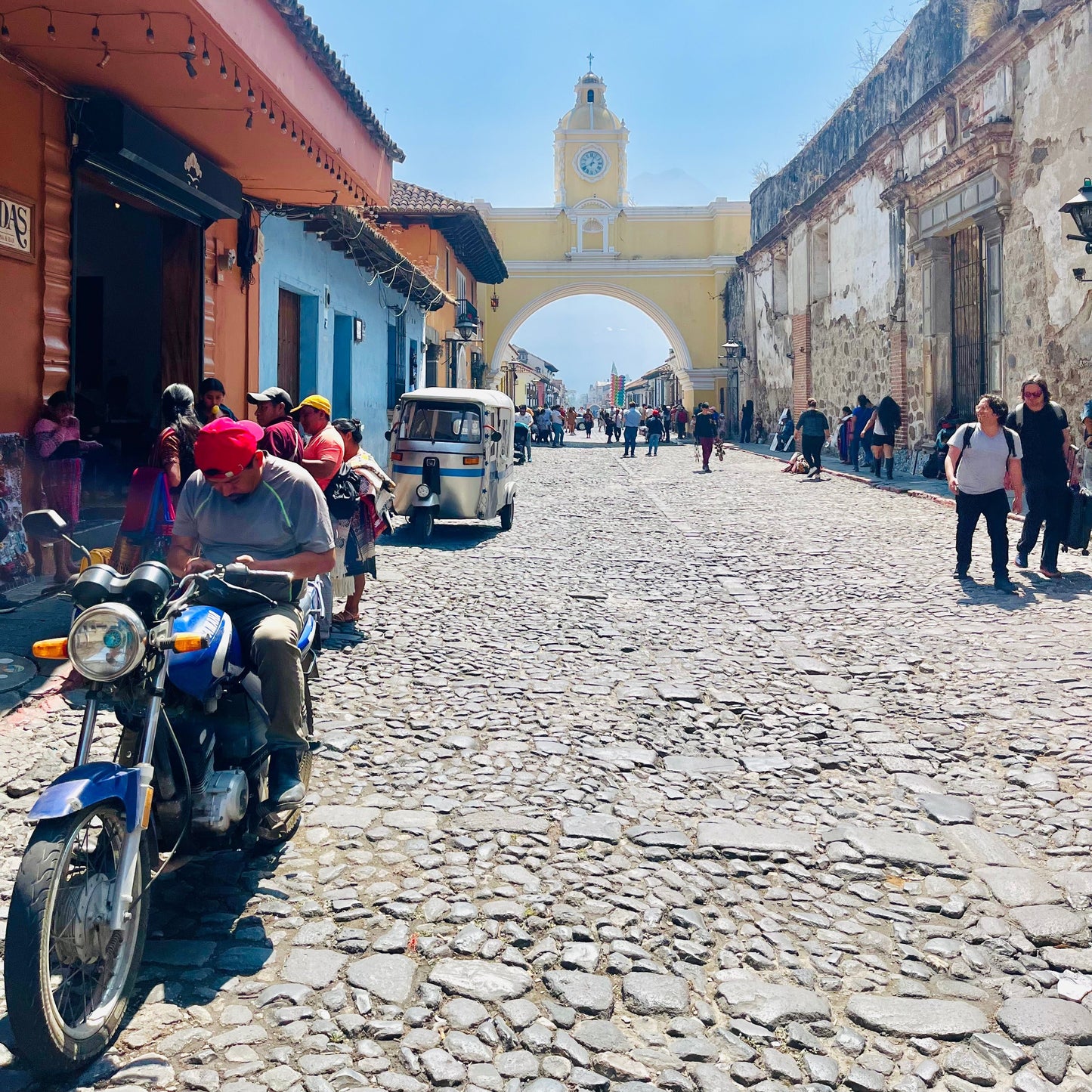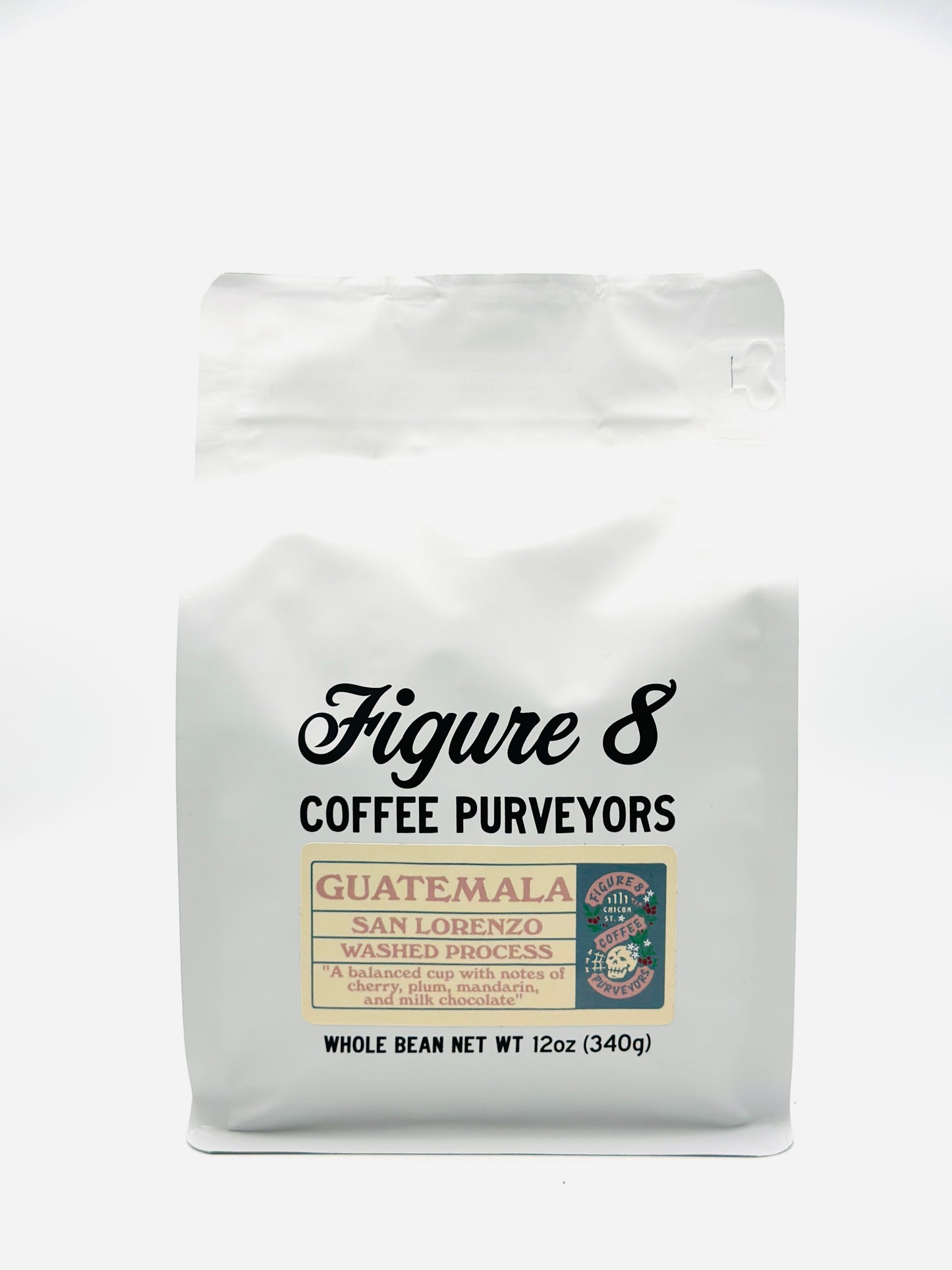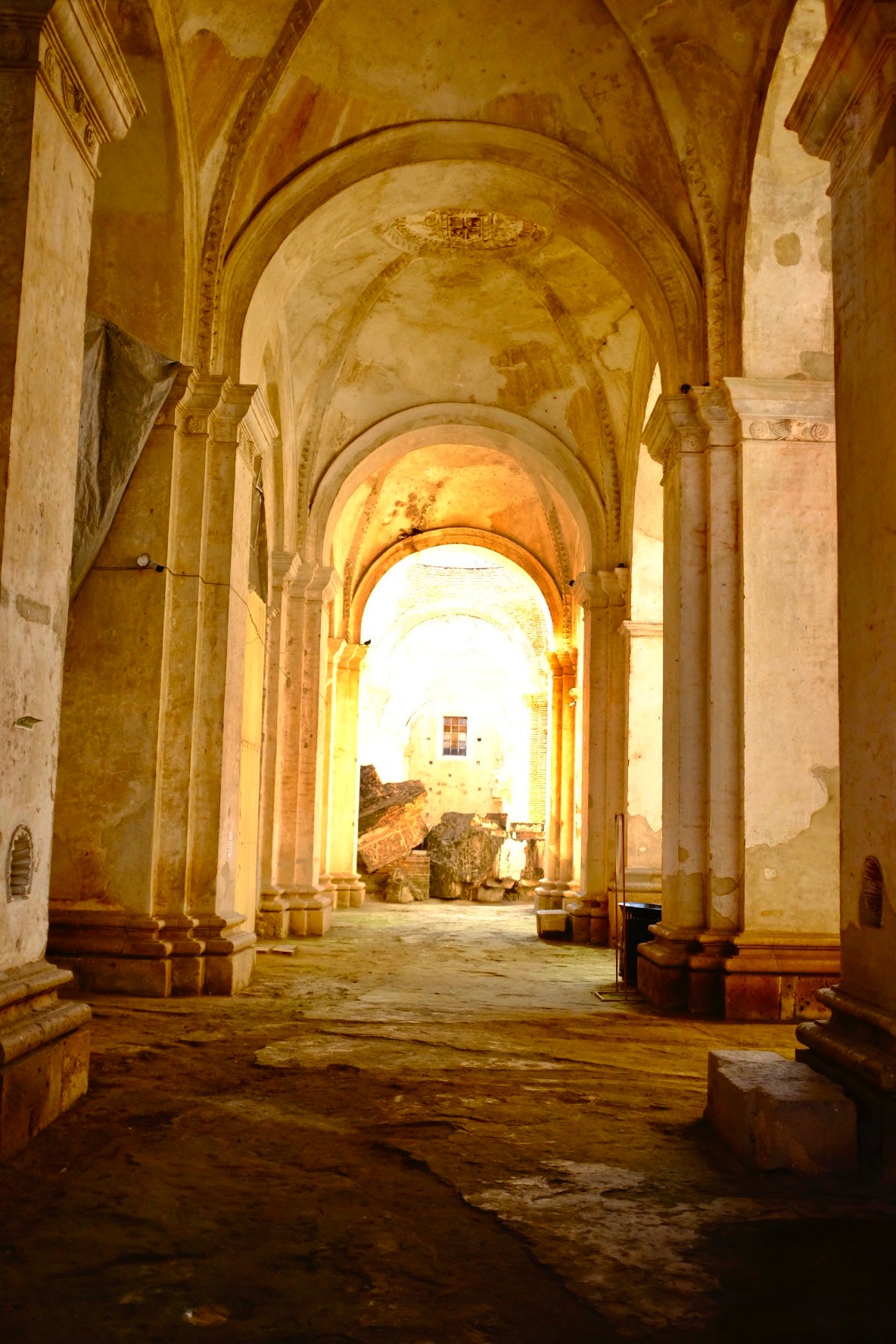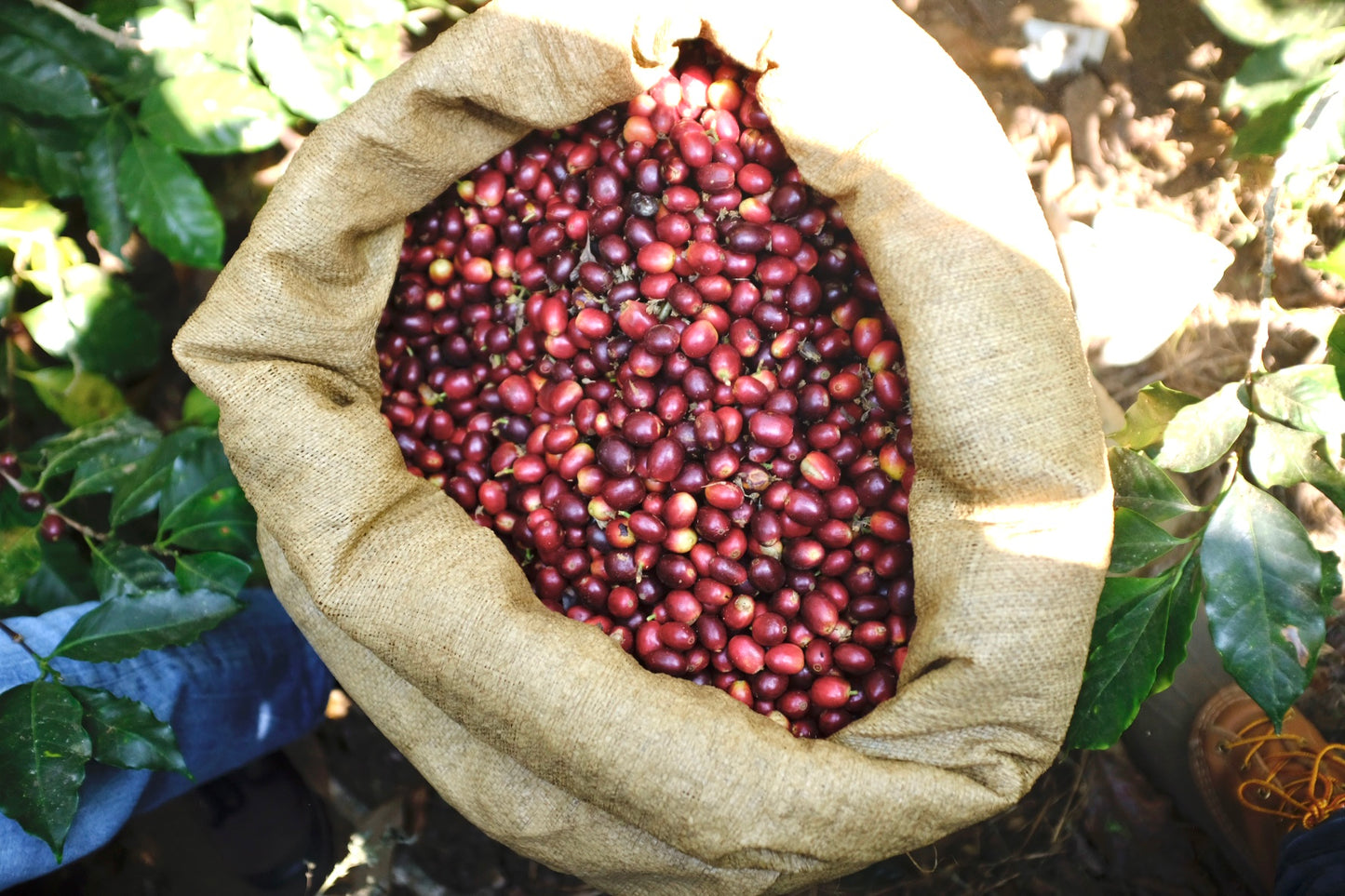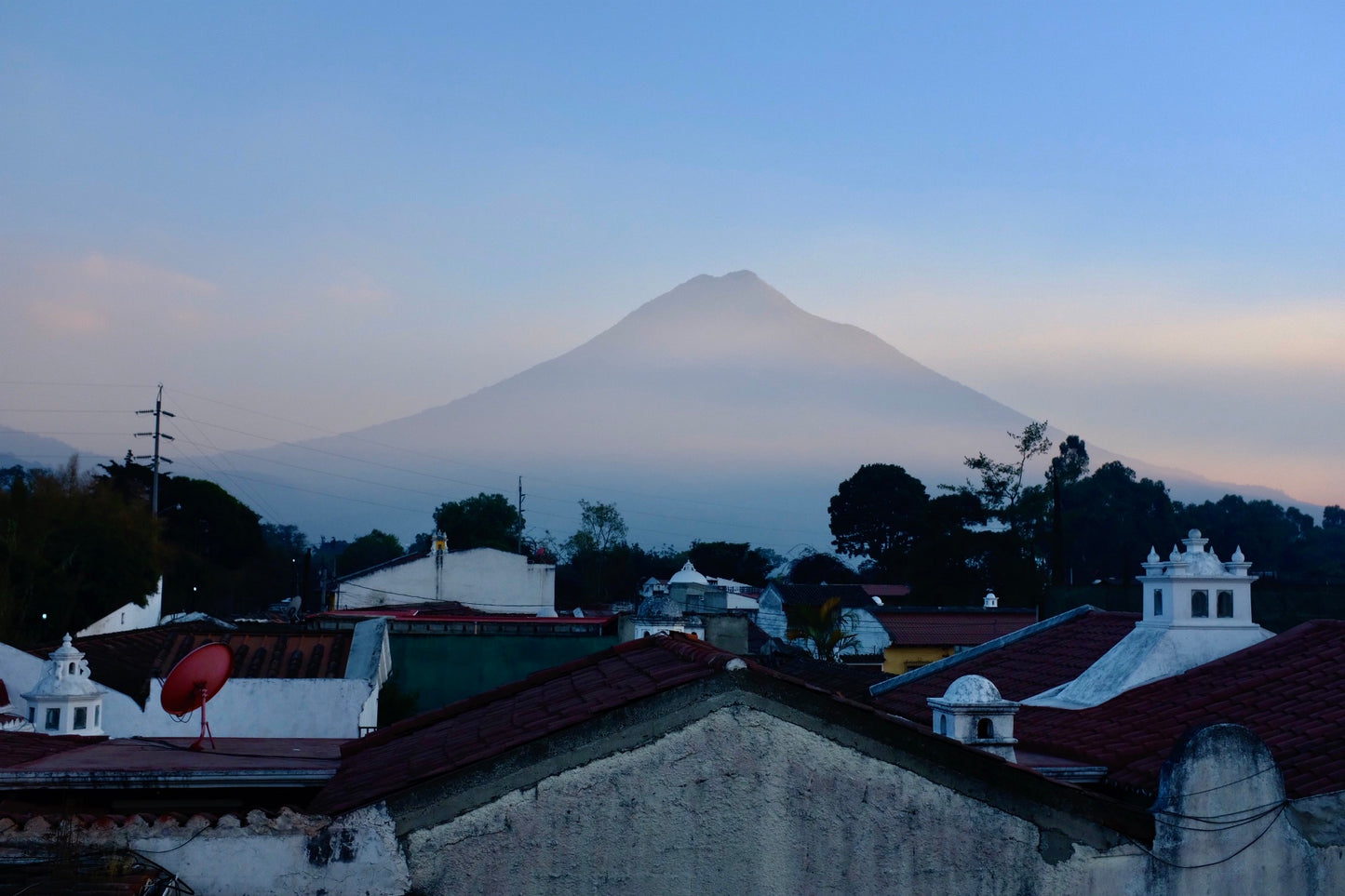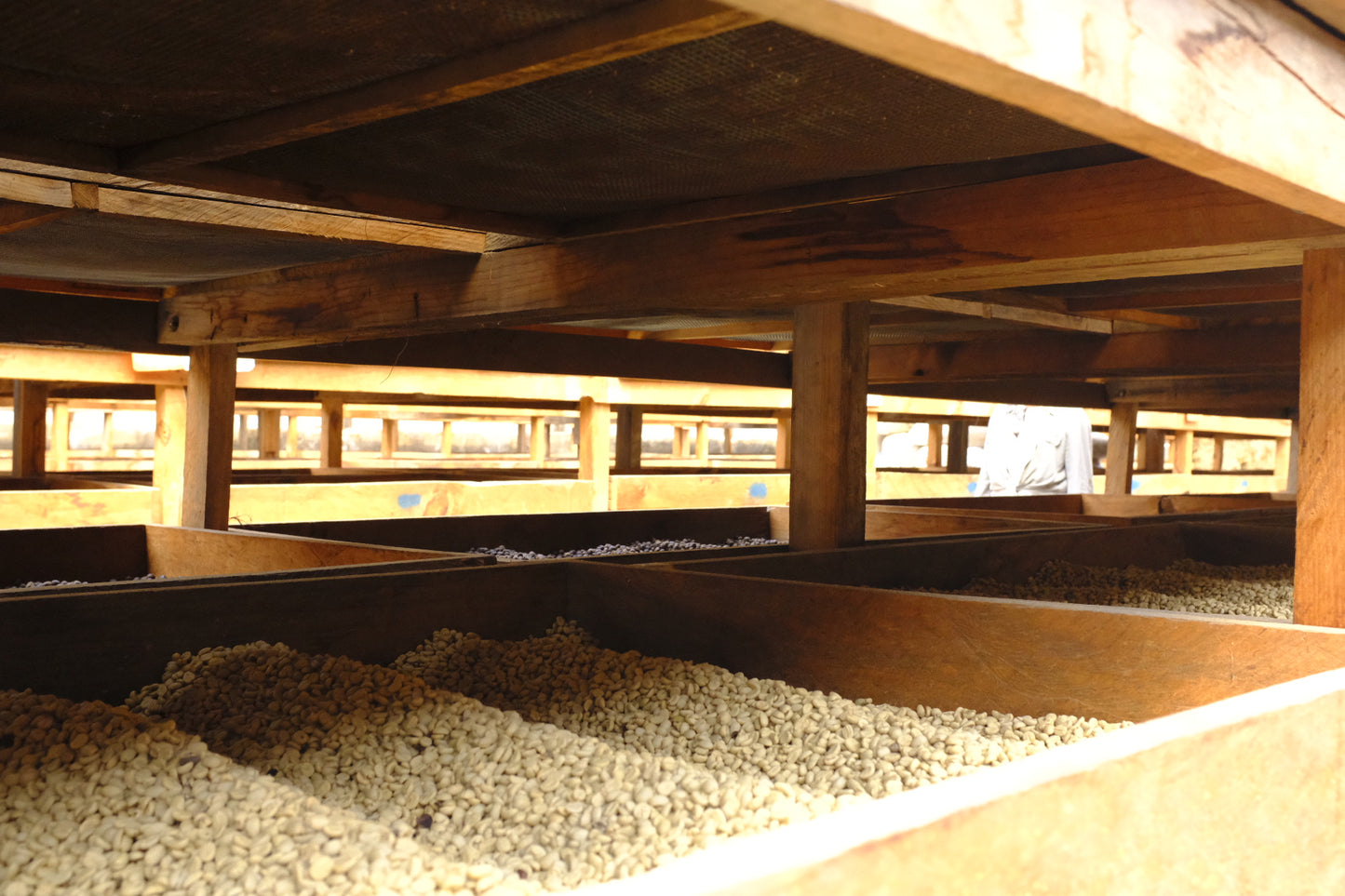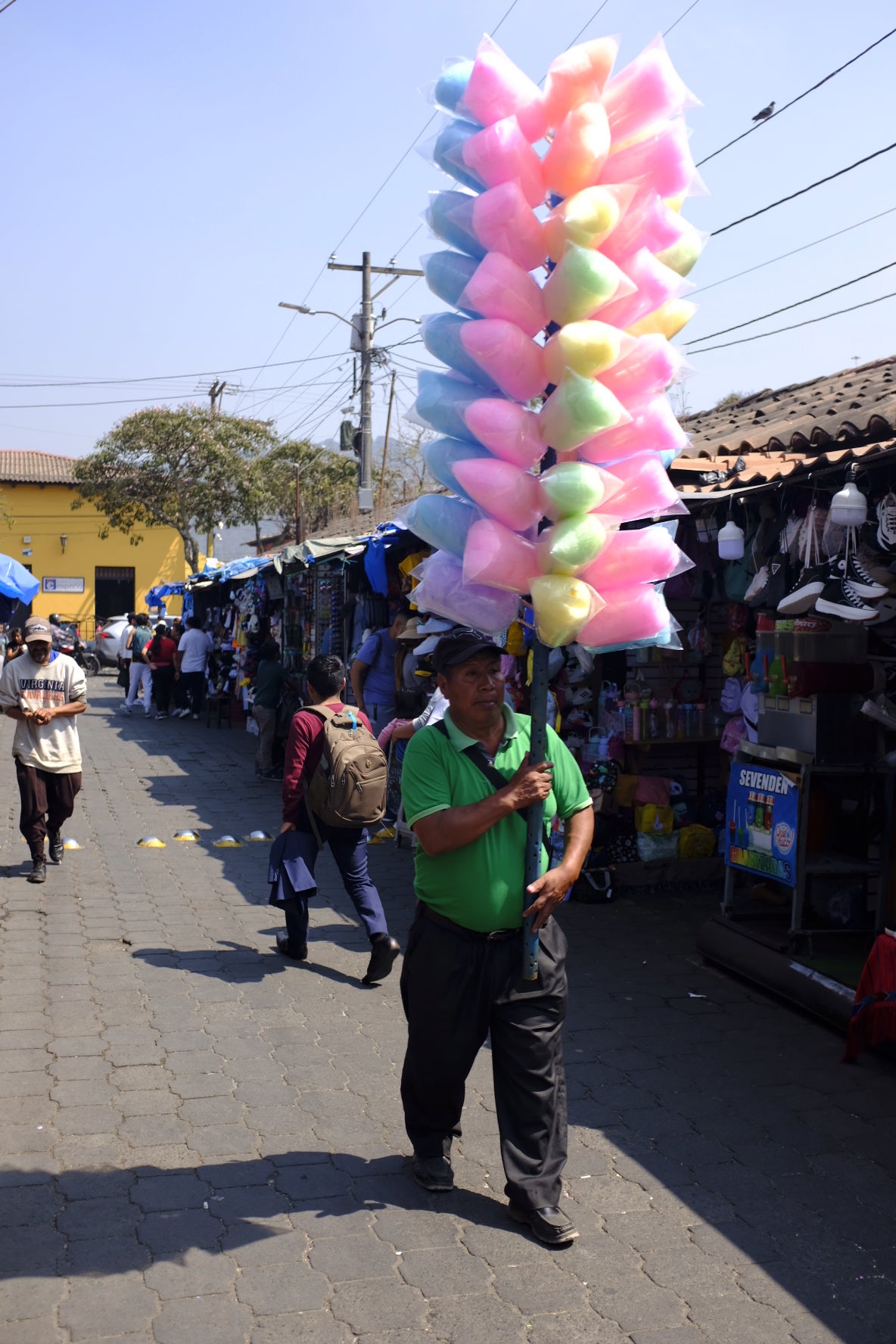Guatemala San Lorenzo
Guatemala San Lorenzo
Couldn't load pickup availability
‘Balanced yet complex, milk chocolate, stone fruit, cherry, soft red apple acidity.’
Luis “Wicho'' Valdés III is the third generation producer of Finca Santa Isabel and Finca San Lorenzo. Located among the rolling hills of the San Cristobal town in the department of Alta Verapaz in the Cobán region of Guatemala, Wicho cultivates and processes one of Guatemala’s most sought-after coffees. Cobán is a coffee growing region characterized by its humid weather and constant rainfall all throughout the year, with an intense rainy season and a light ‘chipi chipi’ rainy season, as the locals call it.
Santa Isabel and San Lorenzo combined are 162 hectares consisting of various coffee varieties, natural forest, a wet mill, drying patio and machine driers. Santa Isabel has been in the Valdés family since 1962. Santa Isabel, along with San Lorenzo, produces around 70 hectares of Caturra, Catuaí, Bourbon, Sachimore, Obata, and Tupí among its many hills, mountains, and plains.
A few miles away from Finca Santa Isabel, separated by a mountain, is Finca San Lorenzo. This farm was purchased by Wicho’s father in the eighties, and it grows the same varieties and shares the same topography as Finca Santa Isabel. Between these farms there is one manager and several auxiliary managers that help oversee the production of each lot. Every year, there are also 50 farmers working on the spectacular cultivation and processing of the farm’s coffee. During the harvest season (from November to April), 500 harvesters work the farms choosing perfectly mature cherries from the millions of plants among the two farms.
Wicho’s coffee is planted in terraces on the steep areas of the farm, to allow heavy rains to drain and to prevent soil degradation. They maintain the correct spacing between each plant as well as appropriate shade use (dependent on the varietal) which allows the coffee plants to maximize the use of nutrients from the soil and sun. Wicho sends samples of the foliage which provides nutrients to the soil, to be analyzed twice a year in order to gather information about the nutrition levels and any possible diseases they may contain. He applies organic matter to the soil in the form of coffee pulp and worm cultured soil.
The lots that Los Volcanes Coffee builds are based on profile as the farm produces many different interesting ones! Due to the climate characterized by the constant rainfall and the light mist that coats Cobán, Wicho uses multiple techniques for drying his coffee. All of these techniques produce a high quality coffee with its own exceptional characteristics.
All photos: Figure 8 Coffee Purveyors
